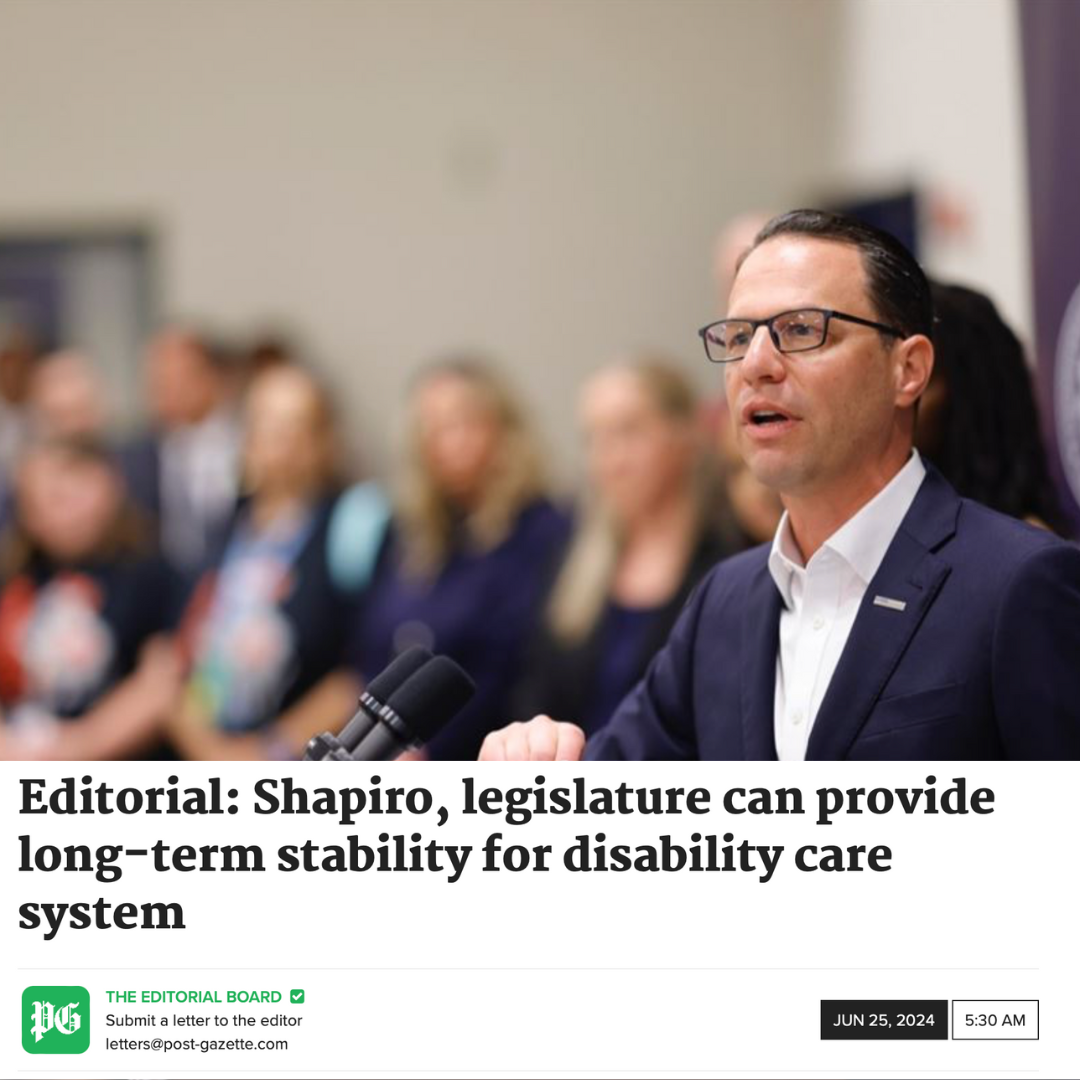
In his second budget as Pennsylvania’s chief executive, Gov. Josh Shapiro has a chance not just to boost funding in the short term for Pennsylvania’s intellectual disabilities and autism (ID/A) community, but to establish long-term stability for these essential services. As the state’s rarely-met June 30 budget deadline approaches, and as the General Assembly already has an important bill before it, it’s time for Harrisburg to follow through on Mr. Shapiro’s promises.
There’s hardly a better, more humane use for the state’s billions of dollars in reserve funds.
Caring effectively for people with ID/A in Pennsylvania is a struggle because of absurdly low reimbursement rates — below $17 an hour — for direct support professionals (DSPs), who compassionately administer care that is often physically and emotionally exhausting. This has led to a massive staffing shortage, and a waitlist of over 13,200 people across the state. This includes 6,000 patients in the “emergency” category. They need help now — without it, families are desperately treading water to keep their loved ones safe and healthy.
Mr. Shapiro has promoted a plan to end this emergency waitlist within five years — and that is still a very long time for families to wait. This goal is only achievable with serious state investment to fulfill its legal duty to provide this care. Last year looked promising, until the General Assembly slashed a total of $370 million from the governor’s appropriation for the ID/A community.
This year’s budget is back to big promises, including $217 million in state funds to raise DSP reimbursement rates closer to competitive wages and $34 million to specifically cut down on the emergency waitlist. Another $266 million in federal matching funds will bolster these efforts. Support from key Senate Republicans is encouraging: This may finally be the year the ID/A community gets the support it’s been waiting for.
But long-term commitment to keeping reimbursement rates fair is the only way to achieve a truly sustainable solution. Mr. Shapiro has done well by embarking, last September, on the process of reevaluating DSP wages before the typical three-year cycle had completed. This demonstrated Mr. Shapiro’s understanding of the seriousness of the crisis, and provided important information for this year’s budget process.
However, the state’s methods for evaluating reimbursement increases remain vague and ill-suited to current labor market conditions. HB661, introduced by disability advocate and House Majority Whip Dan Miller, D-Mt. Lebanon, would index these pay scales to inflation. adjusting them every year. The bill has been idling in the Human Services subcommittee since March of last year. Full passage should accompany passage of Mr. Shapiro’s funding request, so that the ID/A community will not have to beg for Harrisburg’s care and attention every year.
Last year, the debate on private school vouchers for low-income families caused months of delays and budget compromises, leaving Pennsylvanians with ID/A behind. By passing new funding and long-term support for the ID/A community, the legislature can ensure that Mr. Shapiro’s commitment to vulnerable Pennsylvanians will outlast his time in office — and doesn’t become another unfulfilled promise.
First Published: June 25, 2024, 5:30 a.m.
